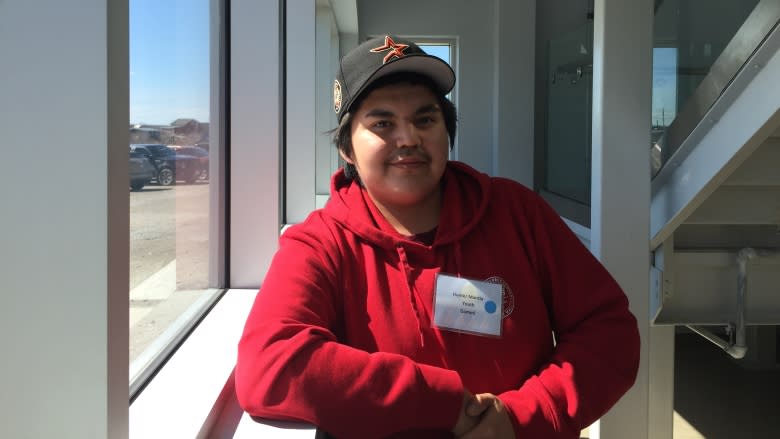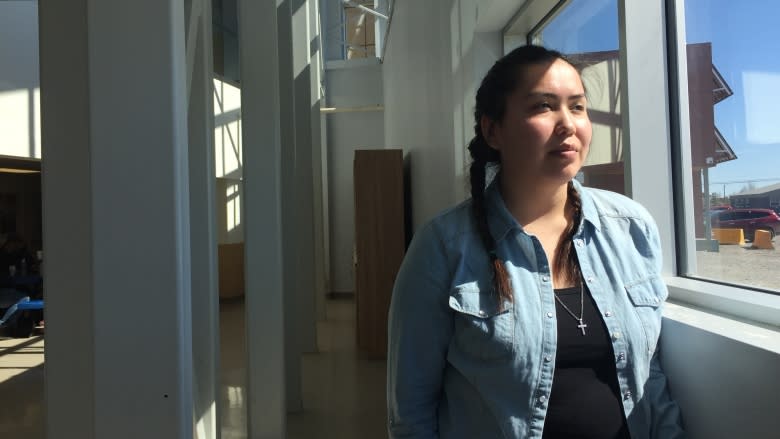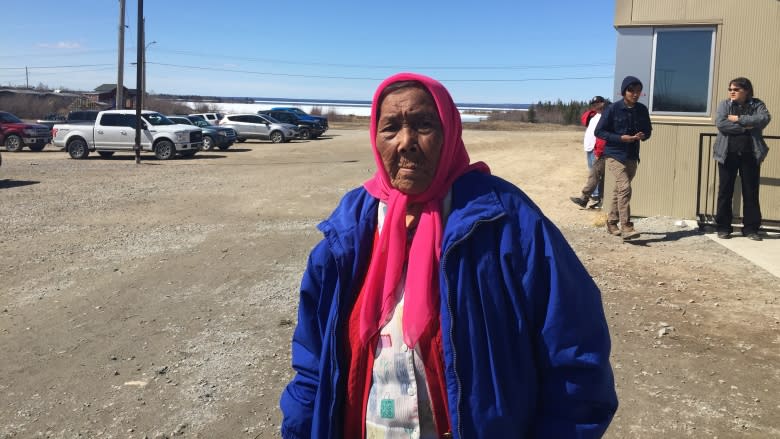Tlicho region looks to bridge language gap between youth, elders
When Hunter Mantla of Gameti heard his aunt speaking in Tlicho, he used to think he had plenty of time to learn her stories.
"I didn't understand," he said. "And I always told myself, one day, I would listen to my elders."
That changed when he was about 15 years old and his aunt died of cancer.
Now, 21-year-old Mantla wants to learn the language so he can understand other elders in his community. He says his family often speaks the language around him and he hopes to be proficient within five or six years.
"Here I am now, I'm listening," he said. "I'm trying to speak it. I'm fully committed to going back to my ways of the Tlicho life."
According to the N.W.T. Bureau of Statistics, the Tlicho region leads in the territory when it comes to people who can converse in select Indigenous languages. However, the number of people above the age of 15 in the region who can converse in an Indigenous language has been on a downward trend since 1999.
That's why Mantla and other people from the region gathered at the Khon Go Cho Complex in Behchoko from May 15-17. They wanted to know how they can turn things around and increase people's proficiency in Tlicho once again.
Youth under pressure
Federal census numbers from 2016 for people of all ages who speak Tlicho show there is a language barrier between youth and elders.
The data shows 65 per cent of people in the Tlicho region speak the language, and 53 per cent of 15- to 24-year-olds speak it, compared to 94 per cent of people over 60.
That could pose a problem. While it's not the only factor in evaluating language vitality, a UNESCO report on language endangerment says, "the most commonly used factor … is whether or not it is being transmitted from one generation to the next." Thus, much of the pressure to keep the language going falls on youth and young parents.
- FEATURE | My language, my heart
At the gathering in Behchoko, young people described the weight of that responsibility.
Not being able to speak the language, Mantla said, makes him feel "a little bit down on myself."
Mercedes Rabesca, 22, doesn't speak Tlicho at all, and understands very little of the language.
"It makes me feel like I kind of lost some of my identity," she said. "What's the point of me being Tlicho if I don't understand my language, my culture and traditions?"
Losing that sense of identity can have other consequences. One study in B.C. found that Indigenous communities where more people were conversational in their traditional language were far less likely to be plagued by youth suicides.
Elders sharing their stories
Speaking Tlicho through an English interpreter, Behchoko elder Marguerite Tsatchia said she wanted youth to know her people's stories of struggle and survival on the land.
She talked about the importance of fish and caribou to keep people full, and told a story of how it was so cold one winter, "the people went to a specific lake and a man had to sharpen his chisel for three days before he was able to break the ice to find fish."
Many at the conference saw their elders' language and their understanding of the land around them as intimately connected.
"All the elders who grew up on the land, they know where a specific name is, where the place is, there's a story goes to it," said Russell Drybones, a bilingual facilitator at the conference.
Unilingual elders like Tsatchia may have detailed knowledge about survival in the region's landscape, but sharing that information may be difficult if young people don't speak their language.
"We need to speak more to understand more of our stories," Rabesca said. "That's what keeps us together."
Looking for solutions
Tlicho people aren't alone in feeling this way. According to UNESCO, languages reflect different world views, value systems and philosophy.
"The extinction of a language results in the irrecoverable loss of unique cultural knowledge embodied in it for centuries, including historical, spiritual and ecological knowledge that may be essential for the survival of not only its speakers, but also countless others," the international body states on its website.
- MORE NORTH NEWS | N.W.T. town adopts Indigenous-language stop signs; man behind project hopes others follow suit
- MORE NORTH NEWS | New video game brings Tlicho folktale to life
Breaking into smaller groups at the complex in Behchoko, residents of the region talked about a number of different approaches to increase people's proficiency in Tlicho — from more funding, to more training opportunities for local people, to programs on the land.
Some of the ideas were more personal, like putting sticky notes with Tlicho labels on furniture at home. Others involved demands for more federal government funding. People also emphasized the importance of parental responsibility in speaking Tlicho at home and not giving up.
"If we tell our story about how we travelled in the springtime and got fish and went to the caribou grounds — if we tell our young people that and they listen and they try to understand what it's like … they may be useful to our nation in the future," said Tsatchia.
Mantla said his friends try to practice the language — even if sometimes they flub along the way.
"We were taught, 'Don't be ashamed of who you are,'" he said. "Even though you say something wrong, it's okay. You're a human being. You have to make mistakes."





